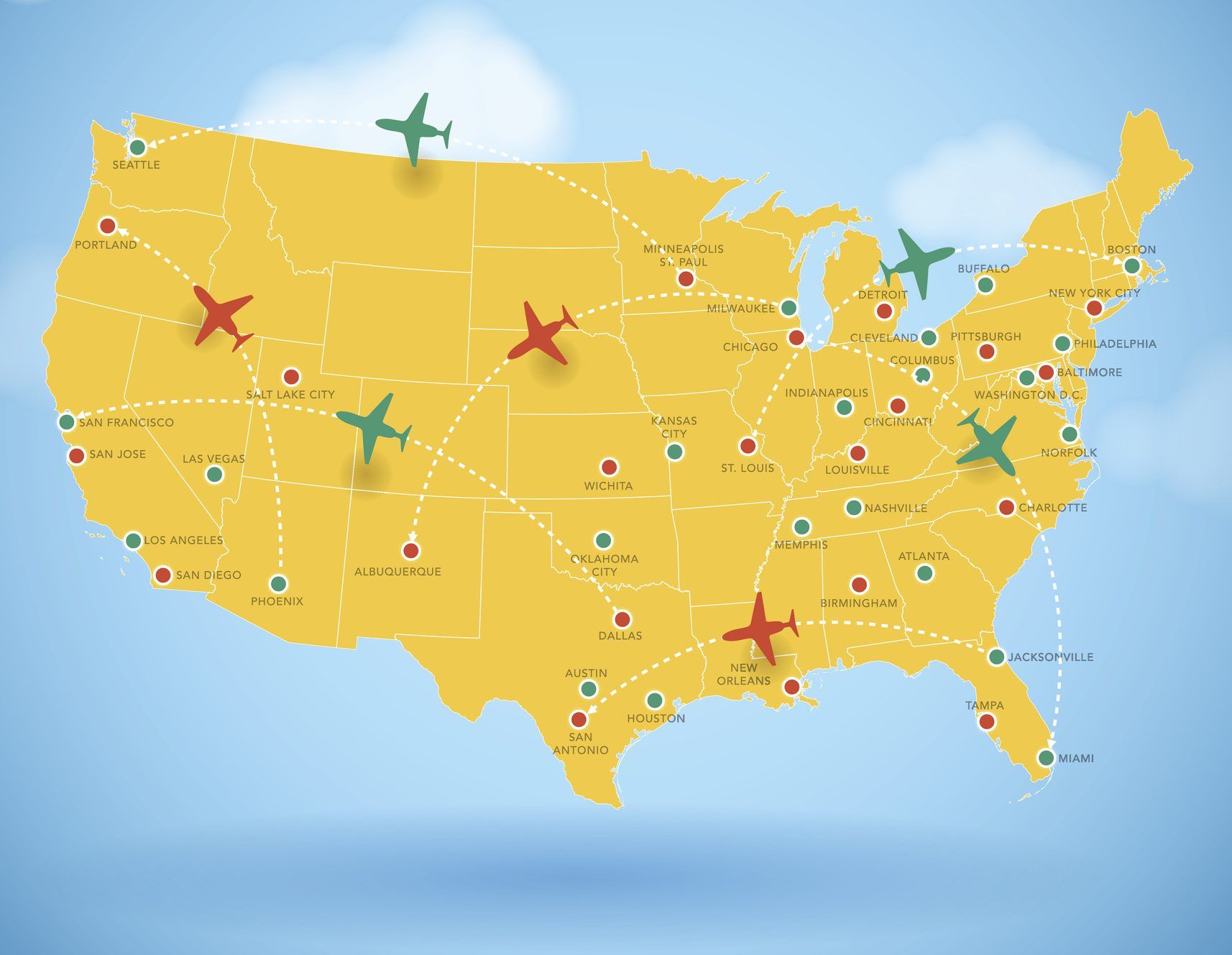In the United States, moviegoers can purchase a MoviePass, which enables them to watch as many films in the theatre each month (with some limitations) for just $9.95. Imagine being able to do something similar with a first-class plane ticket.
Back in 1980, American Airline was suffering financially. They lost $78 million in revenue due to new competition, a drop in ticket prices, and other factors. To combat the issue, the company came up with the AAirpass, which enabled its wealthiest customers to purchase an unlimited first-class travel ticket for life.
The pass cost $250,000 (the equivalent of $708,000 CAD in 2018). A companion pass cost an additional $150,000, reported The Hustle. Twenty-eight individuals, including businessman and investor Mark Cuban, wound up buying the AAirpass, which wound up costing the airline much more money than they could have possibly imagined.
In 1981, Robert Crandall was the airline’s new president. He envisioned growing the company, and the “ultimate travel perk” was part of the plan. He told The Hustle: “The idea was that firms would buy this for their top performers. But as usual, the public is way smarter than any corporation. People immediately figured out we’d made a mistake pricing-wise.”
Over the years the price of the unlimited lifetime first-class pass increased. By 1993 it cost $1 million and eventually topped off at $3 million, according to Time.
American discontinued the unlimited AAirpass program in 1994, but by then a couple of frequent travellers had already taken huge advantage of the program. Investmetravellers Steve Rothstein was contacted by American Airlines to purchase the AAirpass because he was one of its wealthier and more frequent fliers. He bought one for himself as well as a companion pass.
Over the following 25 years, he booked more than 10,000 flights. He took advantage of its unlimited contract—he flew to New York City, London, and Canada. Multiple times. And sometimes just for the day.
Jacques Vroom, a direct marketing catalog consultant, also bought the AAirpass and companion pass. He took out a five-year loan to pay it off because he felt it was worth it and would give him a “competitive advantage,” he told The Hustle.
He flew an average of 2 million miles per year over the next two decades. Both Rothstein and Vroom had faith in the contract they signed with American Airlines. However, in 2007 the airline decided to cancel their AAirpasses because each of the men was costing them about $1 million each year due to taxes, fees, and lost ticket sales.
American had some issues with Rothstein because over the course of four years he made 3,000 reservations but cancelled 2,500 of them. As for Vroom, he allowed strangers to use his AAirpass and was allegedly paid for some of the flights.
Even though these practices were not forbidden in the contract, the airline considered them to be “fraudulent activity.” They revoked Rothestein’s and Vroom’s AAirpasses and banned them from flying on American moving forward. The men each sued the airline but struggled against its powerful band of lawyers. Then American filed for Chapter 11 bankruptcy in 2011.
The economic climate of 2018 is a bit different than it was in the bountiful 1980s when the AAirpass debuted, particularly when it comes to air travel. These days, fliers are lucky to get complimentary drinks and snacks. A first-class travel ticket for life? It’s doubtful any airline would offer such a deal today.
American still has an AAirpass program, but it features pre-paid fares at discounted, fixed prices. Customers must commit at least $10,000 per year, at a minimum.


